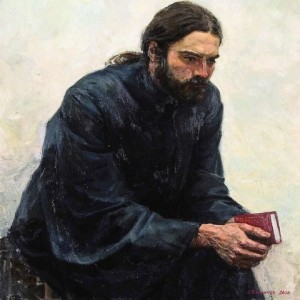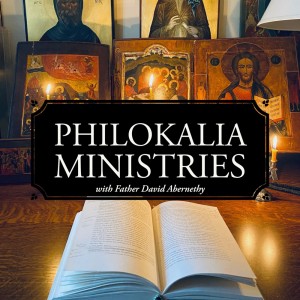
Conferences of St. John Cassian - Conference Twenty One On the Relaxation at Pentecost Part III
 2016-03-30
2016-03-30
After the introduction to the conference presented over the past two weeks revolving around the elder Theona's conversion and his choice of pursuing the absolute good of following Christ and pursuing purity of heart, the dialogue itself begins. The two friends asks Theonas about the custom of not kneeling during the 50 days of Pentecost and of observing a modified schedule of fasting during that season. Theonas first makes a bow to the authority of the ancients. Then, addressing himself to the issue of fasting, he distinguishes between absolute goods and absolute evils on the one hand and those things that are, on the other hand, either good or bad depending on how they are used. Fasting is not an absolute good; if it were, then it would be wrong ever to eat. It is, instead, something indifferent, which is practiced for the sake of acquiring an absolute and essential good. The characteristics of an absolute good, however, are that "it is good by itself and not by reason of something else . . .necessary for its own sake and not for the sake of something else . . . unchangeable and always good . . . its removal and cessation cannot but bring on the gravest evil and that similarly, the essential evil, which is its opposite, cannot ever become good." This definition, so typical of Cassian in its precision, can in no way apply to fasting. With two allusions to the subordination of fasting to the acquisition of purity of heart we are once again drawn back to the atmosphere of the first conference.
view more
While this precise approach to discipline might seem laborious, it lays the foundation for Cassian to set forward with power and clarity the spirit in which we are to live our new life in Christ; the higher standard of love that shapes our identity and ever aspect of our life as human beings filled with the grace of God.
More Episodes
The Ladder of Divine Ascent - Chapter XXVIII, Part VI
 2024-09-18
2024-09-18
 360
360
 2024-09-18
2024-09-18
 360
360
The Evergetinos: Book Two - Hypothesis XXI, and XXII, Part I
 2024-09-16
2024-09-16
 364
364
 2024-09-16
2024-09-16
 364
364
The Ladder of Divine Ascent - Chapter XXVIII, Part V
 2024-09-11
2024-09-11
 467
467
 2024-09-11
2024-09-11
 467
467
The Evergetinos: Book Two - Hypothesis XIX, and XX
 2024-09-10
2024-09-10
 405
405
 2024-09-10
2024-09-10
 405
405
The Ladder of Divine Ascent - Chapter XXVIII, Part IV
 2024-08-28
2024-08-28
 593
593
 2024-08-28
2024-08-28
 593
593
The Evergetinos: Book Two - Hypothesis XVIII, Part III
 2024-08-26
2024-08-26
 468
468
 2024-08-26
2024-08-26
 468
468
The Ladder of Divine Ascent - Chapter XXVIII, Part III
 2024-08-21
2024-08-21
 520
520
 2024-08-21
2024-08-21
 520
520
The Evergetinos: Book Two - Hypothesis XVIII, Part II
 2024-08-19
2024-08-19
 455
455
 2024-08-19
2024-08-19
 455
455
The Ladder of Divine Ascent - Chapter XXVIII, Part II
 2024-08-14
2024-08-14
 567
567
 2024-08-14
2024-08-14
 567
567
The Evergetinos: Book Two - Hypothesis XVIII, Part I
 2024-08-12
2024-08-12
 477
477
 2024-08-12
2024-08-12
 477
477
The Evergetinos: Book Two - Hypothesis XVII, Part I
 2024-07-29
2024-07-29
 621
621
 2024-07-29
2024-07-29
 621
621
The Evergetinos: Book Two - Hypothesis XVI, Part II
 2024-07-22
2024-07-22
 583
583
 2024-07-22
2024-07-22
 583
583
The Evergetinos: Book Two - Hypothesis XV, Part III
 2024-07-09
2024-07-09
 666
666
 2024-07-09
2024-07-09
 666
666
The Evergetinos: Book Two - Hypothesis XV, Part II
 2024-07-09
2024-07-09
 466
466
 2024-07-09
2024-07-09
 466
466
012345678910111213141516171819
Create your
podcast in
minutes
- Full-featured podcast site
- Unlimited storage and bandwidth
- Comprehensive podcast stats
- Distribute to Apple Podcasts, Spotify, and more
- Make money with your podcast
It is Free
- Privacy Policy
- Cookie Policy
- Terms of Use
- Consent Preferences
- Copyright © 2015-2024 Podbean.com



